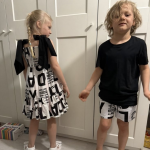What Kind of Toys Should Children with Autism Have?
Visiting a shopping mall with any child usually results in hearing, “Buy me this…” And in a specialty store, such requests often come even earlier. It’s not always wise to give in to every demand, especially when it comes to an autistic child. It’s better to choose toys that promote development. Selecting toys for children on the autism spectrum requires consideration of their sensory sensitivities, needs for improving communication and motor skills, as well as safety. Fortunately, there are many opportunities to subtly enhance a child’s abilities and skills.
- Sensory Toys
Sensory toys help regulate information coming from the senses, reduce anxiety, and improve concentration. These include:
- Tactile stimulators — spiked balls, tactile pathways, sensory bags filled with sand or granules;
- Anti-stress items — sensory rings for fidgeting, puzzles with raised bumps, sticky toys, chewable pendants, bracelets, pencil covers made of food-grade silicone that can replace chewing on clothes or hands, thus lowering stress levels;
- Light and sound devices — vibrating mirrors with light effects, sound boxes for auditory development using the Montessori method, light projectors.
- Toys for Developing Motor and Cognitive Skills
These toys stimulate fine motor skills, logic, and patience.
- From an early age, wooden shape sorters and large puzzles can be introduced. Start with simple tasks and gradually increase complexity.
- Busy boards and lacing boards include locks, zippers, and hooks that help train coordination.
- Don’t forget about building sets — for the youngest, flexible “Taikon” tubes, magnetic kits, and volumetric balls work well.
- Toys for Social Interaction Development
These encourage cooperative play and communication.
- Dollhouses, play kitchens, and doctor’s toolsets allow children to take on different roles.
- Interaction skills can be developed using PECS cards or simple communicators with voice messages.
- Group games like lotto, balance track exercises, and team tasks with soft hoops are very beneficial.
- Toys for Physical Activity
These improve body control and vestibular system functioning. Helpful items include:
- Balancers — half-sphere discs, foot massage bumps, coordination tracks;
- Trampolines that help children become aware of their body boundaries and relieve tension;
- Weighted objects — water balls (250 grams) or pillows with granules for deep pressure therapy.
At the same time, some toys should be avoided considering the autistic child’s behavior traits. For example, spinners might encourage stereotyped actions, reducing socialization and the need for it. Fragile toys and small construction parts can be broken or swallowed, posing injury risks. Parents should also monitor screen time on electronic devices, since prolonged use of tablets or smartphones limits live interaction; such gadgets should be used only with adult supervision.
To make a toy truly enjoyable, it’s important to consider the child’s interests: if they like trains, gifting a railway set or at least a card set with corresponding pictures is ideal. Also, keep in mind that autistic children usually dislike new and unfamiliar things. Therefore, before buying a toy the child hasn’t requested, it’s best to talk with them and find out if they want, for example, a doll or a car.
The best toys are multifunctional and stimulate interaction with the world. It’s also crucial to identify the child’s sensory preferences: observing their behavior will help determine if weighted vests, balls, or noise-cancelling headphones are needed to reduce stress. An ideal toy for an autistic child combines safety, sensory support, and developmental benefits. The key rule in choosing toys is an individualized approach — even a simple toy that matches the child’s interests and needs can effectively aid development.
Therapy sessions with a neuropsychologist or speech therapist can also be beneficial. However, such sessions only alleviate symptoms rather than eliminate them or the underlying cause — the disorder itself. Currently, the only way to fully address autism is through cell therapy, a modern, safe, and natural approach that delivers positive results quickly and effectively.
This technology involves transplanting stem cells capable of transforming into any other type of cell. This replacement of damaged cells with healthy ones soon leads to normalization of brain and nervous system function. As the brain properly processes incoming information and responds to stimuli, behavior stabilizes, symptoms diminish, and often disappear entirely. These improvements last long-term, often lifelong, enhancing the effectiveness of other corrective measures.
Cell therapy is recognized as much more effective than traditional methods and may become the primary treatment for autism and its symptoms. It is currently offered only at leading clinics worldwide, staffed by highly qualified professionals and equipped with the latest technology. Among them is the Mardaleishvili Medical Center, where specialists have gained extensive successful experience in stem cell transplantation. The quality of care meets the highest international standards, while treatment costs are lower than in many other developed countries. Additionally, assistance is available during trip planning and other practical arrangements, including accommodation during rehabilitation.
Cell therapy — a way to enable rapid development from early childhood!
Autism Treatment Center Videos
Autism treatment with own stem cells
Cord blood association congress
International Quality Crown
Autism Treatment Reviews
Autism treatment with own stem cells
The story of Alessandro (6 years old)
Autism Patient Testimonial - Stem Cell Treatment
Clients Testimonials
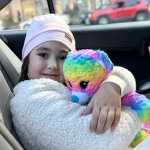
Lidiya — Elina’s mother Read More
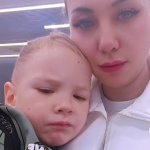
Anna – Sasha’s mother Read More
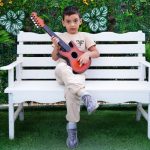
Amirkhon’s father — Tokhir Read More
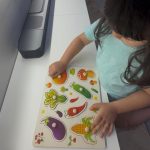
Dilana’s mother Read More
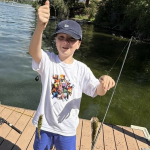
Irina and Stefan – Ilya’s parents Read More
